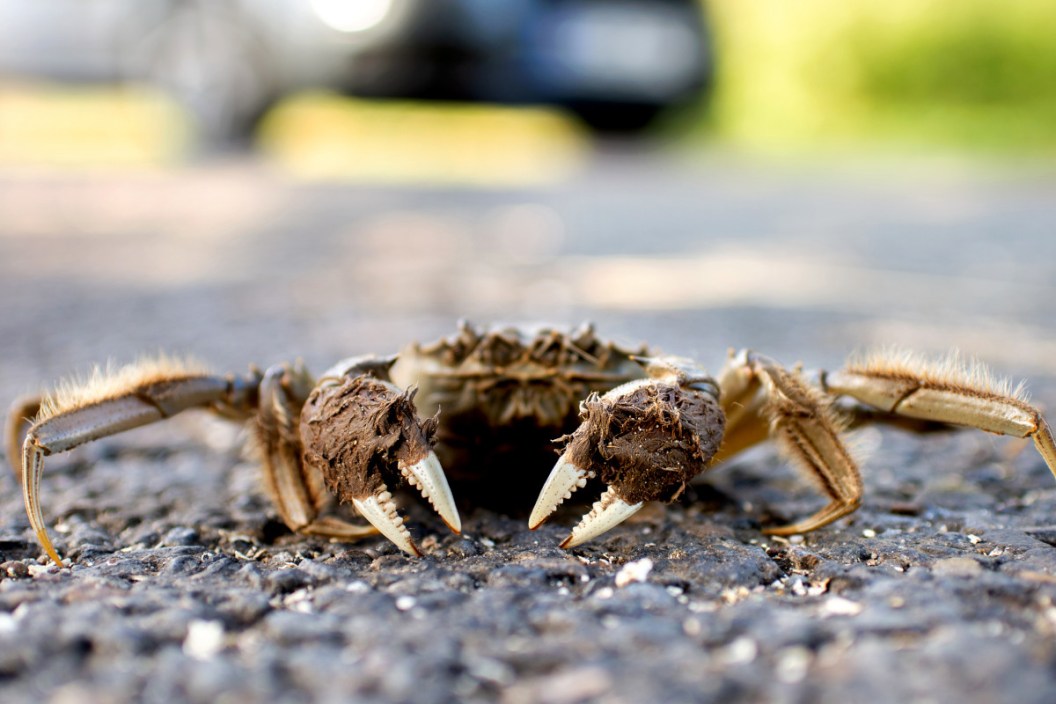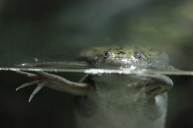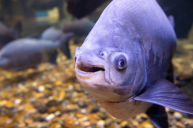An aggressive, furry-clawed crab is invading New England, and it is causing concern for scientists, fisherman, and conservationists. The Connecticut Department of Energy and Environmental Protection (DEEP) is warning the public to be on the lookout for the omnivorous and aggressive Chinese mitten crab, which can wreak havoc on trout and other native fish in large numbers. They consume native fish populations eggs while also out competing the adult populations for food and habitat. Aside from trout, the native populations put most at risk by the presence of mitten crabs would be mainly sturgeon, according to DEEP. These are species that the state is actively trying to restore while the invasive and threatening crabs are establishing populations. If that all wasn't enough, mitten crabs also destroy riverbanks and shorelines by burrowing in.
The crabs are easy to identify, thanks to their distinctive fur-covered claws with white tips. When full size, they are about the size of a human fist. Mitten crabs are usually brownish-orange to greenish-brown and have eight sharp-tipped walking legs, and notched heads. Officials request that any sightings be reported. It is also illegal to throw a mitten crab back into the water if one is caught. If a mitten crab is discovered, put it on ice or preserve in alcohol.
Beyond Connecticut
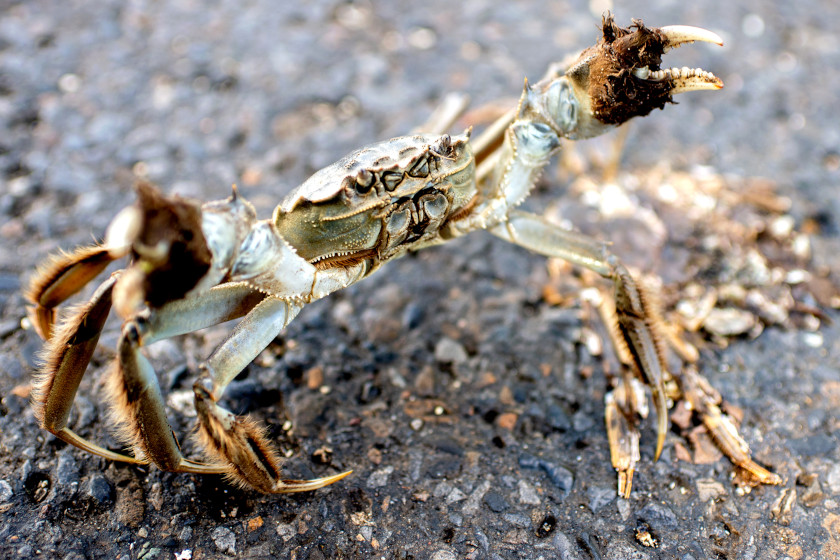
Getty Images: picture alliance
The Chinese mitten crab, which is on the list of the world's top 100 invasive species, is not only creeping its way through Connecticut, but also New York, Massachusetts, and many other parts of the country. During the last decade the Chinese mitten crab caused lots of problems in the San Francisco Bay area, where it was illegally introduced and reproduced rapidly. While numbers remain stable in the West, such as in California where the crabs were once widespread, in the East, reports of the unique crustacean seem to be increasing. In the past two years since the species was first identified on the Connecticut shoreline, there have been an increasing number of confirmed catches of mitten crabs in the state. Most have been caught at the mouth of the Housatonic River by commercial fisherman working oyster beds, but still others have been captured in an area stretching from the Mianus River in Greenwich to New Haven, Connecticut.
Neighbor state New York has also experienced reports of the invasive crab in areas of the Hudson River, which runs North through the state from the New York City hub. Mitten crabs have also caused problems in the Chesapeake and Delaware Bays, as well.
Illegal introduction
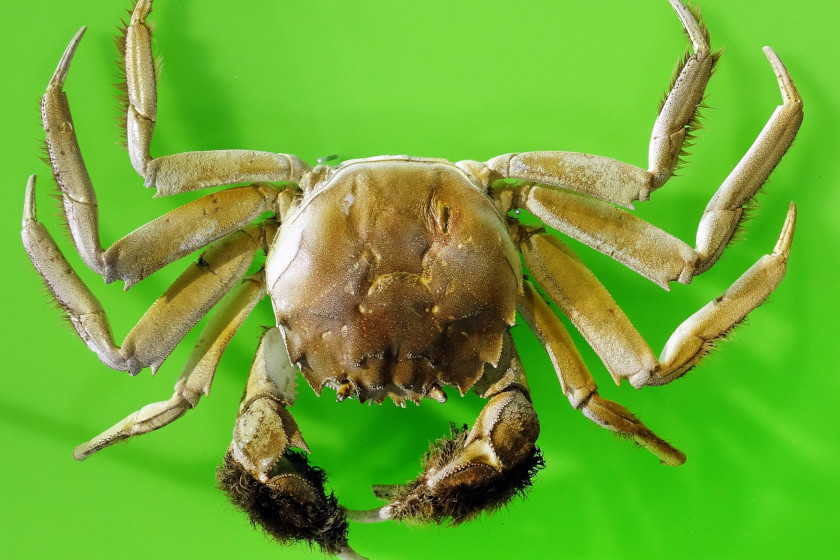
Getty Images: Universal History
Native to China, mitten crabs are considered a seasonal delicacy and can even be purchased live from vending machine there. In the United States, however, the crabs are illegal to possess and illegal to serve in restaurants. Under the Lacey Act it is illegal to import mitten crabs into the United States. Despite that, they are smuggled in by the thousands every year for Chinese New Year and other cultural events. There is a big market for the illegal fare, mitten crabs can bring in up to $50 each.
Illegal importation of the pesky crustaceans is a nationwide problem. Last year, U.S. Customs and Border Protection captured about 3,400 pounds, which is roughly 3,700 mitten crabs, being shipped through the Port of Cincinnati on the Ohio River over a four month stretch. The crabs were falsely labeled as clothing, tools, or other items. Most of the shipments were destined for New York City and originated in China and Hong Kong. The largest interception of illegally shipped mitten crabs happened in 2020. Officials from the U.S. Fish and Wildlife Service seized approximately 15,000 live Chinese mitten crabs as part of a code-named operation called "Hidden Mitten." Operation Hidden Mitten was the first international inspection operation initiated by the newly formed U.S. Fish and Wildlife Service Wildlife Inspection Interdiction Team.
